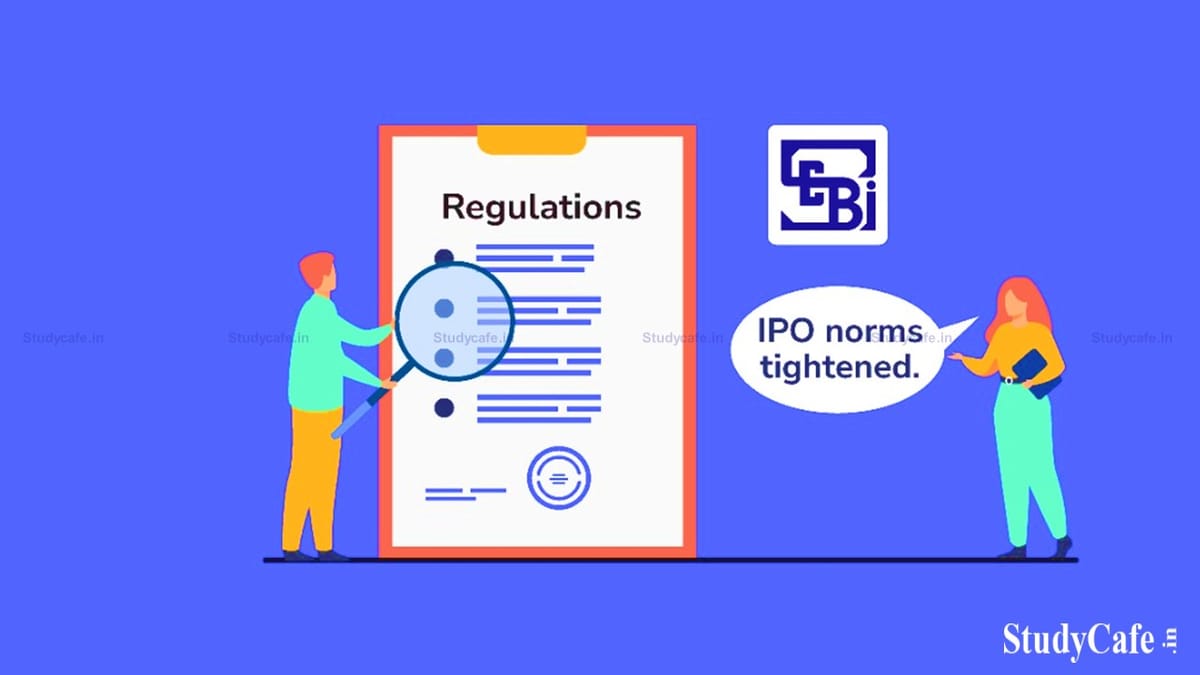Reetu | Mar 11, 2022 |

SEBI Tightens IPO Value Verification for Startups Seeking to List on Stock Exchange
According to Reports, India has increased its inspection of IPO-bound corporations by querying how key internal business measures are used to arrive at values, disturbing bankers and companies concerned about listing delays.
India’s drive comes following the $2.5 billion IPO of SoftBank-backed payments startup Paytm in November, which raised criticism of inadequate monitoring of how loss-making companies price shares at what some argue are exorbitant valuations.
The Securities and Exchange Board of India (SEBI) raised concerns last month in proposing stricter disclosures, stating that an increasing number of new-age tech firms that “generally remain loss making for a longer period” were filing for IPOs, and traditional financial disclosures “may not aid investors.”
However, even before the plan is finalised, SEBI has recently requested that several firms have their non-financial measurements – KPIs, or key performance indicators – reviewed and explain how they were used to arrive at an IPO’s valuation, according to five banking and legal sources.
KPIs for a software or app-based startup may be data like the number of downloads or average time spent on a platform – measurements that, according to sources, are disclosed but impossible to audit or link to a company’s price. SEBI is asking us to “justify the value”, according to one Indian lawyer advising multiple companies considering IPOs, adding that it is “causing uncertainty and increasing the cost of compliance.” SEBI did not respond to a comment request.
Regulators in major markets, including Hong Kong, do adopt methods that subject corporations to greater scrutiny concerning their business processes and financials, but they rarely conduct comprehensive checks on valuation criteria. Reuters obtained a letter from February containing SEBI’s remarks to an Indian IPO-bound business, which asked for a “explain of how KPIs form the basis” for determining the IPO issue price, adding that they should be “verified by a statutory auditor.”
PharmEasy, an Indian digital healthcare platform that filed papers for a $818 million IPO in November, is one company that has been subjected to such scrutiny: one source with direct knowledge said the company raised concerns with SEBI about auditing and supplying such details, and is likely to receive some relief. PharmEasy did not react to a comment request.
It is unclear whether the additional material required by SEBI would be made available to potential investors. According to Pranav Pai, founding partner of Indian venture capital firm 3one4 Capital, SEBI is not putting any value caps and is merely “bringing parity of information” between profitable and loss-making companies seeking IPOs. “SEBI is not requesting anything out of the norm,” Pai stated.
The increased monitoring comes as India’s startups and other businesses have become a favourite of international investors and have increasingly entered the markets.
More than 60 businesses, including high-profile IT ones, made their market debuts and raised more than $13.5 billion last year, with many more, such as ride-hailing firm Ola and hotel aggregator Oyo, still in the works.
The Paytm offering, on the other hand, generated valuation issues.
Following a drop on listing day, the Indian payment firm’s shares are now trading 64% below their issue price, with some investment managers predicting that the incident will “hopefully bring some realism to values.”
Concerns are rampant among bankers, attorneys, and businesses as the investigation continues, despite the fact that SEBI’s recommendation on whether such KPI-related disclosures should be enforced or not was open for public comment until March 5, according to three individuals.
The proposal said that major accounting criteria like as price-to-earnings were insufficient to assess the businesses of loss-making firms, and that SEBI wanted audit and disclosure of “all important KPIs” shared with pre-IPO investors for three years.
“Many investors, entrepreneurs, and merchant banks are concerned about SEBI’s plan,” said Vivek Gupta, National Head of M&A at KPMG in India.
According to sources, investment bankers from Bank of America and India’s Kotak Mahindra have both expressed concerns to SEBI about the anticipated inspection of IPOs. They refused to comment.
One top executive of an Indian start-up seeking an IPO expressed concern.
“This will inspire future generations of entrepreneurs to incorporate outside of India so that they can readily list abroad.”
Source: Business Today & Business Standard
In case of any Doubt regarding Membership you can mail us at [email protected]
Join Studycafe's WhatsApp Group or Telegram Channel for Latest Updates on Government Job, Sarkari Naukri, Private Jobs, Income Tax, GST, Companies Act, Judgements and CA, CS, ICWA, and MUCH MORE!"